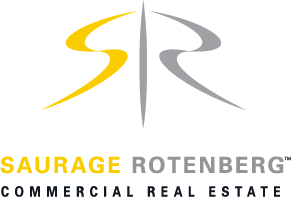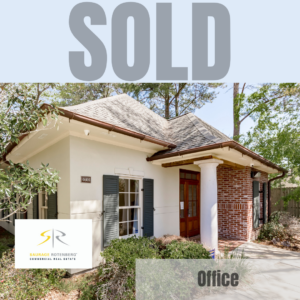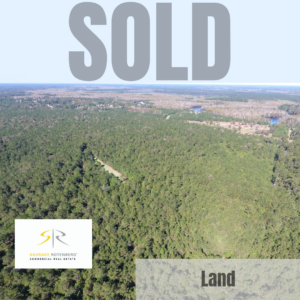Article submitted by Matthew Shirley, CCIM, Sales and Leasing Agent for Saurage Rotenberg Commercial Real Estate
Written by Ely Razin for Forbes | October 10, 2016
The jobs data released Friday showed negligible change, but the employment report- the last before the Federal Reserve’s next policy meeting, in November- has fueled speculation about a Fed rate hike by the end of the year.
Before we get to the rate hike, let’s take a quick look at the jobs data and its implications for commercial real estate.
The unemployment rate was “little changed” in September, the Bureau of Labor Statistics said Friday, edging up a tenth of a percentage point over August, to 5.0%. Nonfarm payroll employment increased by 156,000 in September, with average nonfarm job growth in 2016 remaining 51,000 below the monthly average last year. Nonfarm wages increased 6 cents last month, while average hourly earnings rose 2.6% over the past 12 months.
Dow Jones, Nasdaq and the S&P closed lower Friday on the mediocre jobs news, pulling down the three major U.S. stock indexes for the week and ending a three-week winning streak.
There were some bright spots, however. Despite the bad news from the retail sector over the past few months- store closures, bankruptcies, poor earnings- employment continued to trend up last month in retail trade (especially clothing and clothing accessories stores) and food and beverage services, for a total of 617,000 more jobs in both industries over the year. Employment in construction and financial activities remained relatively stable over the month.
As for the interest rate, it is increasingly looking like the rate hike will come just before year-end, with economists anticipating the Fed will avoid an increase at its next policy meeting, on Nov. 1-2, because it is so close to the presidential election. A December rate hike, however, is widely expected.
“The September jobs report should leave the Fed on track to hike in December, but it wasn’t robust enough to push for a November hike,” Michelle Meyer, a U.S. economist at Bank of America Merrill Lynch, said in a report cited by MarketWatch.
Phil Orlando, chief equity strategist at Federated Investors, had a similar response. “We’re convinced, regardless of this number and any number afterwards, the Fed is going to raise rates in December,” he told CNBC. “The Fed is hell-bent on getting the funds rate back to 1 percent before the economy rolls over.”
The Fed has projected a less aggressive rise in interest rates in 2017 and 2018, and reduced its longer-run interest rate forecast, to 2.9 percent, Reuters reported last month.
So what would a December interest rate hike mean for commercial real estate?
On the one hand, higher interest rates could be bad for commercial real estate, because they require borrowers to pay more in interest for the same amount of money borrowed. Ultimately, higher interest rates could have a constraining effect on property deals by potentially becoming a barrier to entry for borrowers or prompting borrowers to take out smaller loans. And higher capital costs could increase default risks, which could be bad for the economy as a whole if delinquency becomes widespread.
On the other hand, higher interest rates could provide an incentive for lenders and borrowers to minimize risk and increase caution, which could help prevent another bubble. In addition, higher interest rates tend to signal a strong economy, which in turn tends to correlate with a strong real estate market.
(Go here for a more in-depth primer on the relationship between interest rates and commercial real estate.)
Overall, the jobs report may have been mediocre, but it had some good news for the battered retail sector. As for the next rate hike, it’s increasingly looking like we have about two more months to go.
Matthew Shirley joined Saurage Rotenberg Commercial Real Estate in January 2011. Matthew is a graduate of Louisiana State University with a degree in International Trade and Finance. While at LSU, Matthew was a member of Omicron Delta Epsilon – The International Honor Society for Economics. Matthew’s professional memberships include the Greater Baton Rouge Association of REALTORS® Commercial Investment Division and the Louisiana Commercial Data Base (LACDB).
Saurage Rotenberg Commercial Real Estate is a member of the Baton Rouge Area Chamber of Commerce (BRAC); the West Baton Rouge Chamber of Commerce; the Baton Rouge Better Business Bureau; the Louisiana Commercial Data Base (LACDB); and the International Council of Shopping Centers (ICSC). Several agents, on an individual basis, are members of the Society of Industrial and Office Realtors® (SIOR), the Certified Commercial Investment Member Institute (CCIM); the National Association of REALTORS® (NAR); and the Greater Baton Rouge Association of REALTORS® Commercial Investment Division (CID).




